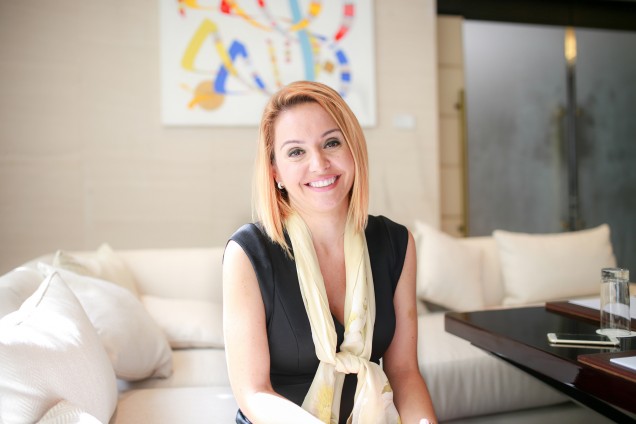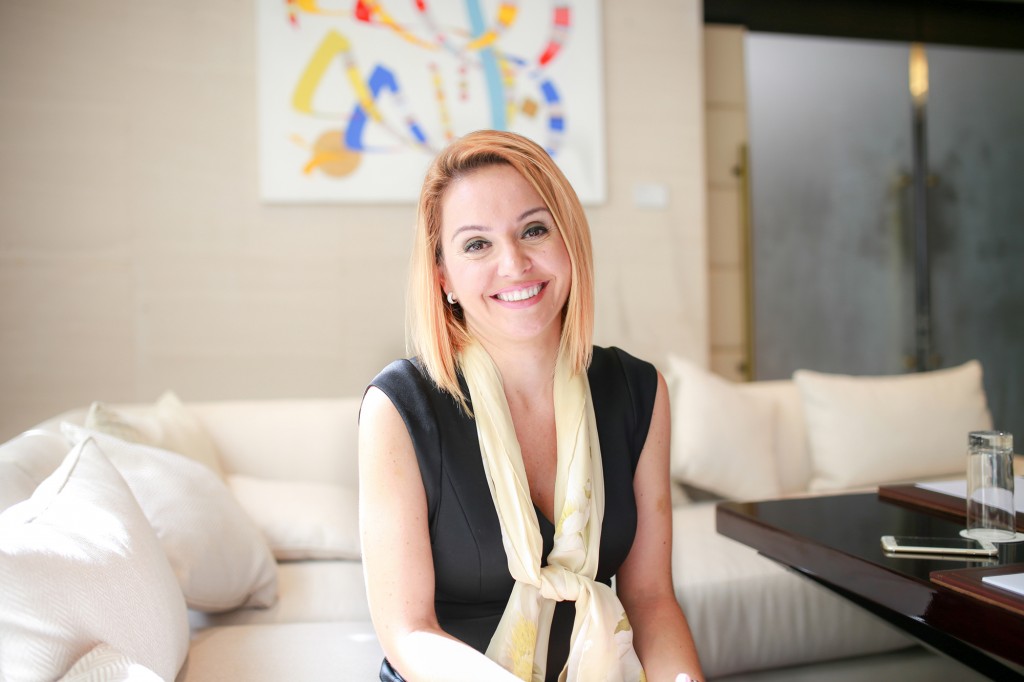My Experience with Life Coach, Sophia Fromell
Earlier this year, I started meeting with Sophia Fromell, a Life Coach based in Dubai. I must say, I never really knew the difference between a life coach, a therapist or a counsellor, and that was the first question I asked Sophia, who works from Capital Club in DIFC, to which she responded, “a therapist looks at your past and hears your problems, whereas a life coach looks at your challenges and helps enrich your future” — which I loved. With all the baggage we carry from the past, we aren’t going to change anything till we look at our future.
During my five sessions with Sophia that we spread out on a weekly basis, I found myself discovering some things I already knew. There was no stress or work in our sessions, just really clearing up all the fog in my mind — over a cup of Moroccan tea (they serve really good Moroccan tea there!). My personal favorite, and possibly the most moving activity, was looking through the balanced pie chart which was broken down into different categories: personal life, social life, work life, finances, and personal growth to name a few. Once I looked through all that, it really helped identify the things I wanted to change. I’m all for enriching our lives, and being the best individuals we can be.
Here’s my interview with the lovely Sophia:
Hi Sophia! One of the most interesting things for me is learning how a life coach has benefit everyone’s lives. Why do most of your clients hire you?
Everyone needs guidance, young or old. Most people who seek my help are at the crossroads. Some of them get to the point where they are unable to see the road ahead— nothing. They often tell me that they feel stuck or unfulfilled, like they are not living the life they want to live. They want something to change but they don’t know what.
As a life coach, I provide them support and guidance. I guide them to find the answers within themselves because a person can’t do it alone especially with the pressures of work or life, in general. I’m like a swimming coach but better, not only do I keep them from drowning, I also help them swim like they have never swim before.
You’ve been trained by Bob Proctor (whom most people know from The Secret), what were the most moving lessons you learnt from him?
Learning itself never stops. Every time Bob speaks I always find something new about life coaching and about myself as well—as my own person and as a life coach like him.
He says, “’if you see it in your mind, you will hold it in your hand”. He also taught me that I can achieve whatever I want in life and it changed me a lot. I am far more positive and determined. What I really aim for in life is to share this knowledge as a life coach and be able to change people’s lives, the same way Bob did with mine.
You offer 5 different types of coaching? Could you talk me through them.
Life coaching is a guide to find balance. In life, sometimes people live in the dark—doing things that don’t necessarily make them happy then end up unhappy and unfulfilled. Through a series of sessions, life coaching can shed some light for people to reset their goals and be able to live the life they want.
Career coaching – Career coaching’s main focus is not in finding a job, but more on which job fits a person’s skillset and passion. From there we can set up professional goals, make career decisions and overcome negative feelings such as ‘being stuck’. The goal is to eliminate ‘career dissatisfaction’
Corporate coaching – This is more about coaching for a team or an organisation. We help them work as one and re-align the organisational goals to optimise their team performance. A team that works together leads to the growth of the company.
Leadership coaching – leadership coaching is tailored around a specific business purpose. It brings a unique combination of business, behavioral and capability awareness to enable leaders to master new attitudes, approaches and behaviors. Through this, they can enhance their capability to achieve short and long term goals.
Change management – Change Management helps you see yourself from different angles, perspectives and viewpoints. It challenges the way you see the world around you by allowing you and to think outside the box to better evaluate different situations. It enables you to increase readiness and adapt to change, reduce resistance and welcome change as a necessary step in life.
How important is life coaching to an individual?
Imagine that you’re looking at yourself in the mirror, obviously you see yourself. Life coaching will let you see how the mirror sees you on the other side. No matter who you are and what you do in life, working with a life coach will give you the right feedback that will make you a better person—someone that has no personal attachment to you therefore can provide with an objective input and give the exact answers you need.
According to Eric Schmidt, former CEO of Google, one thing we are never good at is seeing ourselves as others see us. And a coach can help us gain this perspective and ensure we are making the right choices that would eventually lead us to live the life we really want.
What makes a balanced life?
It varies from person to person. Some people focus so much on their career that they tend to let go of their relationships with their friends, family and partners. Others focus so much on social interactions that they forget about their health. The trick is to not let yourself go and forget about the rest. It doesn’t mean that we have to give the equal amount of time to everything but it’s about adapting to change.
If you have an 8-hour shift at work, make sure you leave notes or send loving messages to your family. Check up on them, you don’t need to physically be there for eight hours to make them feel loved. It’s the same thing with health, if you don’t have time to exercise just always make sure that you’re getting the nutrients you need.
Always remember however, that what constitutes a balanced life changes as our circumstances change, so you need to review all areas of your life regularly to ensure that you feel balanced.
How many goals do you recommend someone to set per year?
One or two goals are enough, having more than that is already unhealthy. Setting a goal is like a chain reaction; it will affect all aspects of your life so you wouldn’t need many all at once. Having a specific goal will force you out of your comfort zone and make sacrifices that will make you be a better person.
For example you want to grow professionally in terms of your career, in the process you can see that your financial life and your personal well-being is also affected. Having a goal is one step towards achieving the right balance in life.
Our sessions were all about setting 2 goals at a time, and keeping them as precise as possible. Why is that very important?
A goal is like a road map, it tells you where you have to go. If your goal is not specific enough, you will find yourself working towards something but not getting the results that you want. It is like deciding to go on holiday but not knowing your destination, where are you meant to go?
What are the reasons for failed goals?
Our goals often fail because they are not the right goals for us. There are 3 types of goals:
Type 1: Setting goals that are already reached. It is like going on holiday to the same place like last year. This type of goal does not push for motivation, it’s repetitive and change will less likely happen.
Type 2: Choosing the road. The main focus is on the journey but not the destination. Effort is used in thinking of ways on how to get there, like riding a bus then travelling by plane. Things might go according to plan, which is good but if there are any slight changes, you can get demotivated and will not pursue the goal anymore. It will be difficult to adapt to change if things didn’t go with what was expected.
Type 3: Leaving the box. It aims for individuals to leave their comfort zones. This is the goal that is scary and exciting at the same time but once we are outside our comfort zone, learning and growth will more likely be achieved.
Always remember though, that having failed goals is one step towards learning. Failing is painful but it is necessary for growth. In pain, lessons are learned; in scars, lessons are remembered.
How do stresses affect our life and how do we get rid of them?
Stress is the body’s natural response to increasing demands and two things can cause it: our perception of a situation and how it is weighed. Stress can be healthy; when balanced it becomes a stimulator that keeps us engaged with the world. It can also act as a motivator for people to function, reach their goals and overcome stress.
The difference between good stress and bad stress is based on its duration and how an individual perceives it. Good stress is temporary, triggering an adaptive response, while bad stress is long term and persistent, triggering a destructive response.
To deal with stressful moments, it is important to learn how to become aware of what is going on in our own mind and body. Through awareness especially without self-criticism, we can control our well-being and actions.
You constantly mention that it’s not about working hard, it’s about working smart. What does that mean?
Perhaps its easier if I provide you with an example; you want to cut a tree and all you have is a knife. You can work hard and cut your way through it using that knife or you can work smart and look around. Who knows, you may find a cabin, a tree already chopped or a chainsaw just a few yards away from the tree. Working smart is also working hard since you step out of the box in order to find better results. It’s about making the right decision. Identify the opportunity when you see it then act accordingly.
Could you talk me through your book that you’re launching soon?
It is a collection of case studies from the people I have worked with. It describes some of the most common challenges that people face in life and it describes how these individuals have overcome those challenges. It is about their success and how they got to be the real person they always aspired to be.
These are stories that most of us relate to, we can see ourselves in almost each one of them. I hope that the stories will motivate and inspire every reader to make a new start in life. I also hope that it can push them to pursue their dreams, to set ambitious and inspiring goals that will lead them to live the life they want to. But most importantly, learn more about themselves in the process.
Sophia Fromell is an executive life coach, with a background in Wealth and Investment banking. Visit www.ithaca-life.com for further details or call 050 105 2530.





